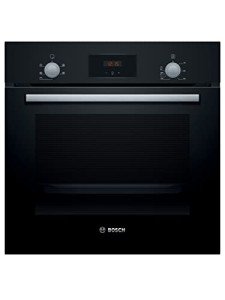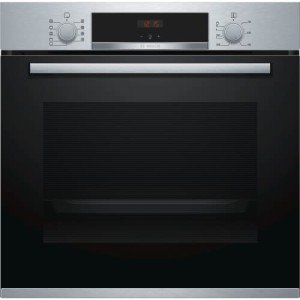The 10 Most Scariest Things About Oven Built In
페이지 정보

본문
Understanding Built-in Electric Ovens: A Comprehensive Guide
In contemporary kitchen areas, built-in electric ovens have actually become a basic function, providing convenience, efficiency, and a sophisticated combination into kitchen design. This article aims to inform homeowners and cooking enthusiasts about the advantages of built-in electric ovens, crucial factors to consider when picking one, and upkeep tips to guarantee lasting functionality.
What is a Built-in Electric Oven?
A built-in electric oven is designed to be set up within kitchen cabinetry or walls, perfectly mixing into the kitchen's architecture. Unlike standalone ovens, these models conserve floor area and can be located at eye level, facilitating easy access and tracking while cooking.
Benefits of Built-in Electric Ovens
- Space Efficiency: These ovens utilize vertical area, making them perfect for smaller kitchen areas or those seeking to take full advantage of counter area.
- Aesthetic Appeal: Built-in ovens offer a clean and modern-day look that enhances the kitchen's overall design.
- Ergonomics: They are installed at comfy heights, reducing the strain on the back and knees, specifically when loading or unloading dishes.
- Advanced Features: Many built-in electric ovens come with state-of-the-art features like wise controls, convection cooking, and Oven built In self-cleaning choices, which can make cooking easier and more effective.
- Enhanced Functionality: Models frequently include extra features such as multiple cooking modes, timers, and temperature level probes.
Key Considerations When Choosing a Built-in Electric Oven
When selecting a built-in electric oven, numerous factors should be taken into account to ensure it meets your cooking requires and fits within your kitchen layout.
Size and Capacity
Built-in electric ovens normally come in numerous sizes. It's necessary to determine the assigned space to ensure an appropriate fit. Here are common sizes:
- Single Oven: 24 to 30 inches large, ideal for most cooking jobs.
- Double Oven: Two different compartments, permitting you to cook several meals at various temperature levels.
- Wall Ovens: Available in large sizes, matched for extensive cooking experiences.
Functions
Choosing features that line up with your cooking habits is crucial. Consider the following choices:
- Convection Cooking: Distributes heat equally for constant results.
- Smart Technology: Enables push-button control and preheating by means of mobile phone apps.
- Self-Cleaning: Simplifies maintenance and oven Built in cleaning processes.
- Steam Cooking: Adds wetness to meals for much better cooking outcomes.
Setup Requirements
Built-in electric ovens need appropriate electrical circuitry and ventilation choices. It's suggested to seek advice from experts during the setup stage to fulfill electrical codes and make sure safety.
Rate Range
The cost of built-in electric ovens can differ considerably from budget options (₤ 600 - ₤ 1,200) to high-end designs (₤ 2,000 and above). Consider your budget and cooking frequency when selecting.
| Price Range | Functions | best integrated ovens For |
|---|---|---|
| ₤ 600 - ₤ 1,200 | Basic functions, manual controls | Casual cooks |
| ₤ 1,200 - ₤ 2,000 | Convection, clever innovation | Major home cooks |
| Above ₤ 2,000 | Premium materials, advanced features | Expert chefs or premium cooking lovers |
Upkeep Tips for Built-in Electric Ovens
Making sure that an electric oven built in, Read Far more, runs efficiently involves regular upkeep. Here are some practical ideas:
- Regular Cleaning: Wipe down the door and inside the oven after each use to avoid grease buildup.
- Self-Cleaning Cycle: Utilize the self-cleaning function occasionally (if available). Follow the maker's directions for optimal performance.
- Inspect Seals and Gaskets: Inspect the door seals for wear and tear to keep cooking efficiency.
- Adjust Temperature: Regularly check and calibrate the oven's temperature for precision cooking.
- Expert Servicing: Schedule yearly maintenance talk to certified specialists, specifically for advanced designs with many electronic components.
Frequently Asked Questions (FAQs)
1. Are built-in electric ovens more effective than standard ovens?
Yes, built-in electric ovens often have better insulation and features like convection cooking that can prepare food faster and evenly, saving energy.
2. Can I set up a built-in electric oven myself?
While some useful people might select to attempt a DIY installation, it is recommended to work with a professional to guarantee safe and compliant setup.
3. How much power does a built-in electric oven use?
Usually, built-in electric ovens consume between 2,400 to 5,000 watts, depending upon the model and features. Always refer to the manufacturer's requirements for accurate figures.

4. Do built-in electric ovens require unique cabinets?
Yes, built in oven uk-in electric ovens need customized cabinets or wall enclaves that support their weight and allow for appropriate ventilation. Ensure that the kitchen cabinetry adheres to setup guidelines described by the manufacturer.
Built-in electric ovens are a valuable addition to any modern kitchen, providing a range of functions that make cooking easier and satisfying. By comprehending the advantages, selection criteria, and upkeep requirements associated with these ovens, consumers can make informed decisions that align with their culinary requirements and way of life preferences.

- 이전글Guide To Upvc Windows Manchester: The Intermediate Guide In Upvc Windows Manchester 25.05.20
- 다음글12 Facts About ADHD Test Adult To Make You Think About The Other People 25.05.20
댓글목록
등록된 댓글이 없습니다.




















